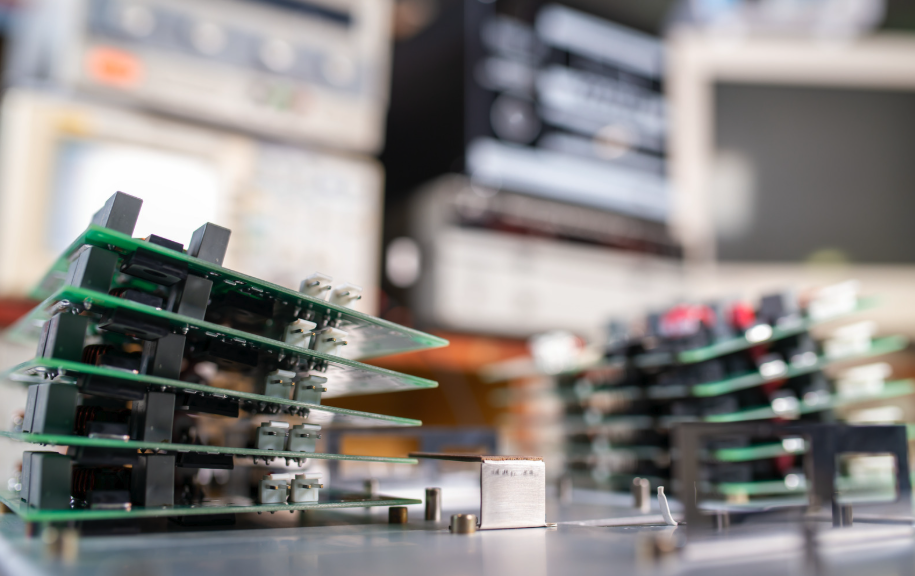The Future of Semiconductor Technology in the Electronics Industry

More from the Category
The semiconductor industry is undergoing rapid innovation, playing a pivotal role in advancing the broader electronics sector. As technology demands evolve, especially in consumer electronics, automotive, telecommunications, and AI, the push for faster, smaller, and more energy-efficient chips has never been more urgent.
Below, we explore the latest trends and emerging technologies shaping the future of semiconductor development.
Key Trends Driving the Future of Semiconductors

Demand for Smaller, More Efficient Devices
With the surge in demand for portable and high-performance electronics, chipmakers are racing to deliver components that offer:
• Higher performance
• Lower power consumption
• Smaller footprints
This shift is influencing design approaches and material choices throughout the industry.
Use of III-V Semiconductor Materials
III-V semiconductors (made from group III and V elements of the periodic table) are gaining popularity due to their superior electrical properties compared to traditional silicon.
These materials:
- • Offer higher electron mobility, leading to faster signal transmission
- • Are ideal for RF applications, 5G infrastructure, and optoelectronics
- Are being deployed in:
· High-speed communication devices
· Solar cells
· LED technologies
· Advanced radar systems
3D Chip Stacking Technology
To overcome the limitations of traditional 2D chip designs, the industry is moving toward 3D integrated circuits (3D ICs).
- Advantages include:
- • Increased transistor density
- • Shorter interconnect paths, leading to faster processing
- • Lower power consumption per computation
- Current and emerging applications:
- • High-end graphics cards
- • Data center processors
- • Mobile SoCs (System on Chips)
Quantum Semiconductor Technologies
Quantum computing is still in its infancy, but its implications for the semiconductor world are profound.
Potential breakthroughs:
- • Exponential improvement in computational power
- • Accelerated AI and machine learning capabilities
- • Enhanced simulation and modeling for material science and drug discovery
- Challenges ahead:
- • Fabrication scalability
- • Error correction
- • Quantum decoherence
- As research continues, semiconductors will remain central to enabling the hardware backbone of future quantum systems.
Supporting Innovation Through Supply Chain Reliability
While technology races ahead, sourcing the right components at the right time remains a critical challenge. Factors like global shortages, geopolitical instability, and long lead times make supply chain resilience more important than ever.
How Microchip USA Can Help
Microchip USA is an experienced independent distributor of electronic components, specializing in hard-to-find, obsolete, and end-of-life parts. As the semiconductor industry continues to evolve, having a reliable sourcing partner is essential.
Here’s how we support your success:
- • Component Sourcing: We locate rare and obsolete parts using our vast global supplier network.
- • Supply Chain Support: We help optimize inventory and mitigate delays through strategic logistics solutions.
- • Custom Solutions: Our team works directly with you to tailor a procurement strategy that meets your technical and operational goals.
- Whether you’re building cutting-edge semiconductor solutions or maintaining legacy systems, Microchip USA is your trusted partner.
Let’s Build the Future—Together
At Microchip USA, we understand the challenges and opportunities facing today's electronics industry. As innovation drives demand for new materials and technologies, we’re here to ensure that your supply chain keeps pace. Whether you need obsolete components, a hard-to-find part, or a custom inventory strategy, our team is ready to help. Contact us today!